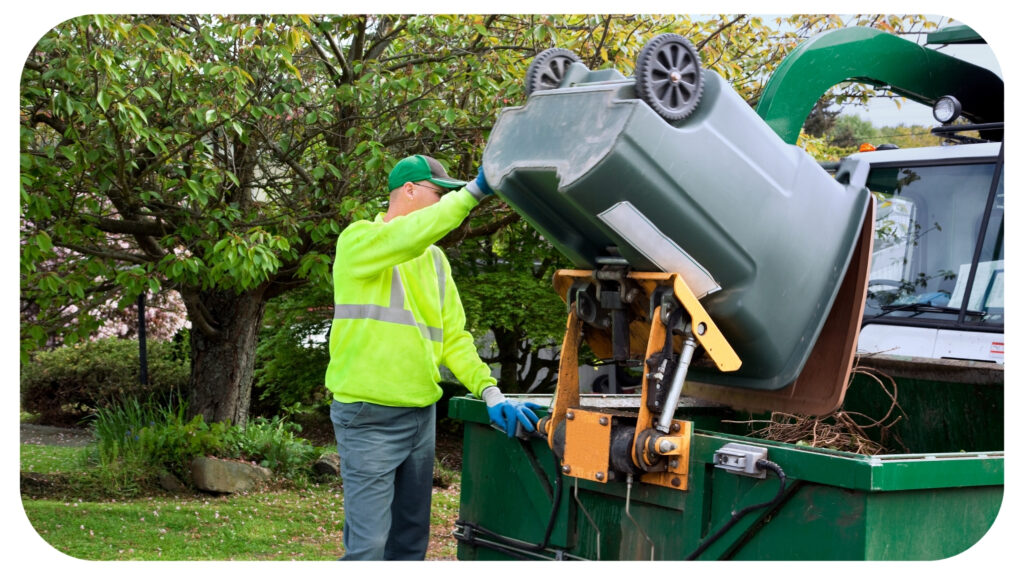4 Strategies for Effective Agricultural Waste Management
This post was last updated on December 25th, 2024

Agricultural waste management is essential for maintaining a sustainable and environmentally friendly farming practice. Effective management not only ensures the health of the farm ecosystem but also boosts productivity and reduces costs.
Here are four strategies that can significantly enhance agricultural waste management.
1. Composting: Turning Waste into a Valuable Resource
Composting is a powerful and natural method to manage agricultural waste. By converting organic waste like crop residues, manure, and food scraps into nutrient-rich compost, farmers can improve soil health and fertility. The process involves the aerobic decomposition of organic materials, resulting in humus that enriches the soil.
To start composting, farmers need a designated composting area where they can pile up organic waste. Maintaining the right balance of green (nitrogen-rich) and brown (carbon-rich) materials, along with adequate moisture and aeration, is crucial for efficient decomposition. Regular turning of the compost pile ensures even decomposition and prevents the pile from becoming anaerobic, which can produce unpleasant odours.
Using compost in the fields can significantly reduce the need for chemical fertilisers, which are often expensive and can have long-term negative effects on the soil and water quality. Composting not only manages waste effectively but also closes the nutrient loop on the farm, promoting a more sustainable farming cycle.
2. Anaerobic Digestion: Producing Energy from Waste
Anaerobic digestion is another effective strategy for managing agricultural waste. This process involves the breakdown of organic matter, such as animal manure and crop residues, by microorganisms in an oxygen-free environment. The end products of anaerobic digestion are biogas and digestate, both of which are valuable resources.
Biogas, primarily composed of methane, can be used as a renewable energy source for heating, electricity generation, or even as a vehicle fuel. The digestate, on the other hand, can be used as a bio-fertiliser, rich in nutrients like nitrogen and phosphorus. This not only helps in managing farm waste but also provides an alternative energy source, reducing reliance on fossil fuels.
Setting up an anaerobic digestion system requires an initial investment, but the long-term benefits and cost savings can be substantial. Additionally, using biogas can significantly lower greenhouse gas emissions, contributing to climate change mitigation efforts.
3. Recycling and Reusing: Minimising Waste Generation
Recycling and reusing materials is a fundamental aspect of effective agricultural waste management. Many items on a farm, such as plastic containers, metal parts, and machinery, can be recycled or repurposed. By adopting a circular approach, farmers can significantly reduce the amount of waste that ends up in landfills.
For example, plastic containers used for pesticides and fertilisers can be cleaned and returned to suppliers for recycling. Old machinery parts can be refurbished or used for other purposes on the farm. Implementing a recycling programme requires a systematic approach, including sorting waste materials, partnering with recycling facilities, and educating farm workers about the importance of recycling.
Reusing materials not only helps in reducing waste but also cuts down on the costs associated with purchasing new items. It fosters a culture of sustainability on the farm, encouraging innovation and resourcefulness among farm workers.
4. Proper Disposal: Ensuring Safe and Responsible Farm Waste Management
Despite best efforts to compost, digest, recycle, and reuse, some farm waste will inevitably need proper disposal. Ensuring that hazardous materials like chemicals, pesticides, and medical waste are disposed of safely is crucial to prevent environmental contamination and health risks.
Farmers should follow local regulations and guidelines for disposing of hazardous waste. Using designated disposal services for farm waste disposal ensures that these materials are handled and processed in a way that minimizes their environmental impact. Proper disposal services can also provide documentation and tracking, giving farmers peace of mind that their waste is managed responsibly.
Regular training and updates on waste disposal regulations can help farm workers stay informed and compliant. Safe disposal practices not only protect the environment but also safeguard the health of farm workers and nearby communities.
By implementing these four strategies—composting, anaerobic digestion, recycling and reusing, and proper disposal—farmers can effectively manage agricultural waste. These practices contribute to a more sustainable and efficient farming operation, benefiting both the environment and the farm’s bottom line.
Recommended For You
How To Get Your Small Business off the Ground
Most Inside
Most Inside offers high-quality recommendations and valuable updates to enhance all aspects of your life, providing premium guidance and enriching experiences.




